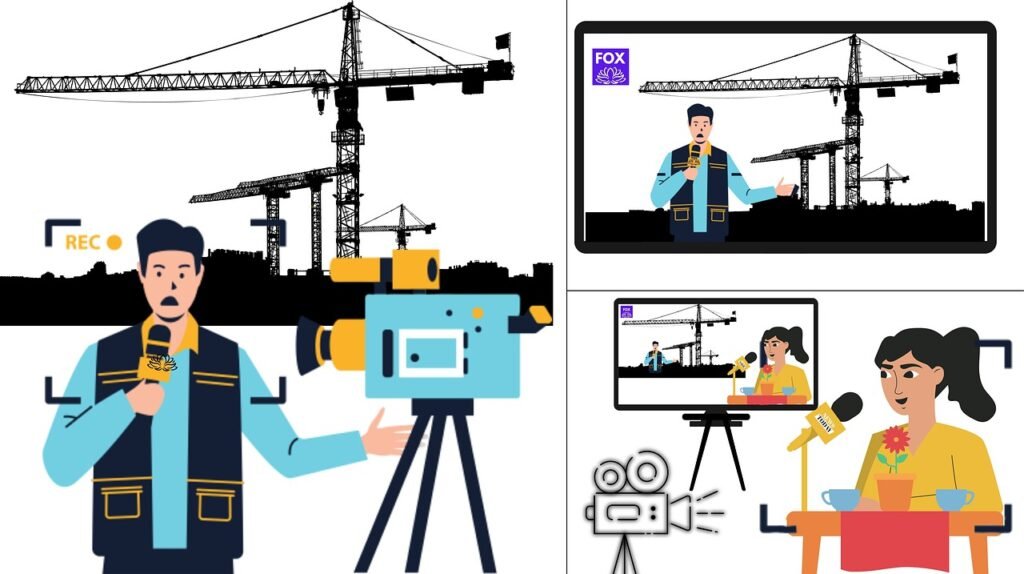Navigating a renovation or construction project in Kingman, Arizona, can be both exciting and overwhelming. But, fear not! A key factor in ensuring your project goes smoothly is maintaining effective communication with your contractor. By understanding the best ways to articulate your vision, check in on progress, and address any concerns, you can foster a positive working relationship. This guide will offer you tips and strategies to effectively communicate with your contractor, ensuring your project in Kingman, Arizona, turns out just the way you envisioned.

This image is property of pixabay.com.
Understanding the Importance of Communication
When you embark on a new construction project in Kingman, Arizona, or anywhere else, one of the critical elements for its success is effective communication. It serves as the foundation upon which the entire project rests. Without clear, concise, and regular communication, misunderstandings can arise, leading to errors, delays, and ultimately, dissatisfaction with the completed project.
Building a Mutual Understanding
At the heart of good communication lies the establishment of mutual understanding between you and your contractor. This involves sharing your vision, expectations, and concerns openly. When both parties understand each other’s viewpoints and objectives, it creates a strong platform for collaboration and success.
Setting Expectations from the Start
Right from the outset, it’s crucial to set clear expectations. This includes everything from project goals, timelines, budgets, to communication protocols. When expectations are clearly defined from the beginning, it minimizes the risk of surprises down the road and helps in keeping the project on track.
The Impact of Effective Communication on Project Success
The success of your project in Kingman hinges significantly on effective communication. It ensures that everyone is on the same page, reduces conflicts, and facilitates smoother project execution. Any issues can be swiftly addressed, and modifications can be made with minimal disruption, ensuring the final output aligns with your vision.
Choosing the Right Contractor in Kingman, Arizona
Selecting a contractor is a pivotal step in your project’s journey. It’s about finding a partner who not only has the necessary skills but also one with whom you can communicate effectively.
Research and Referrals
Start your search by doing thorough research. Look for contractors with a solid reputation in Kingman. Ask for referrals from friends, family, or professional networks who have embarked on similar projects. Personal testimonials provide invaluable insights into a contractor’s reliability, quality of work, and communication style.
Evaluating Experience and Expertise
Once you have a shortlist, evaluate each contractor’s experience and expertise. Consider their track record in projects similar to yours. Don’t hesitate to ask for and check references. Experience in handling projects of similar scale and complexity as yours is crucial.
Conducting Interviews
Interviewing potential contractors gives you a feel of their communication style and whether they understand your vision for the project. Use this opportunity to ask about their approach to the project, how they handle unforeseen challenges, and their strategies for staying on schedule and within budget.
Establishing Clear Communication Channels
Effective communication starts with establishing clear channels right from the outset. This sets the stage for a smooth collaboration throughout the project.
Preferred Methods of Communication
Discuss and agree on the preferred methods of communication. Whether it’s emails, phone calls, text messages, or face-to-face meetings, choose what works best for both you and your contractor. Consistency in using these channels is key to avoiding information being overlooked or lost.
Setting up Regular Check-ins
Schedule regular check-ins, be it weekly or bi-weekly, to discuss progress, address concerns, and make adjustments as needed. These meetings are vital for staying updated and ensuring the project stays on track.
Emergency Contact Protocols
Establish protocols for emergency situations. This includes knowing who to contact and how, should an urgent issue arise. Being prepared for the unexpected helps in mitigating risks and minimizing potential delays.
The Art of Conveying Your Vision
Communicating your vision clearly to your contractor is fundamental to achieving the desired outcome.
Using Visuals and Examples
Visuals and examples can significantly aid in conveying your vision. Bring magazine clippings, photos, or even digital mood boards to help illustrate what you have in mind. This can help prevent misunderstandings and ensure you and your contractor are aligned from the start.
Being Specific About Your Expectations
The more specific you can be about your expectations, the better. This involves detailing not just what you want done, but how you want it done. Clarity at this stage can prevent changes and disputes later on.
The Importance of Feedback
Feedback is a two-way street. Be open to providing and receiving feedback throughout the project. Constructive feedback helps in making necessary adjustments and ensures that the final outcome meets your expectations.

This image is property of pixabay.com.
Setting Realistic Timelines and Budgets
Realistic timelines and budgets are essential for the smooth execution of your project.
Understanding the Construction Process
Familiarize yourself with the construction process to set realistic timelines. Understanding the steps involved can help you appreciate the time required for each phase and set achievable deadlines.
Factoring in Buffer Times
Always factor in buffer times for unforeseen delays. Whether it’s weather-related, material shortages, or other unexpected issues, having a cushion in your timeline can help manage such disruptions without causing panic.
Communicating Financial Limits Clearly
Be clear about your budget from the start. Discuss and agree on a detailed budget, including allowances for unforeseen expenses. Regularly review the budget with your contractor to ensure the project stays within financial boundaries.
Navigating Changes and Modifications
Changes are often inevitable in construction projects. Managing them effectively is crucial to maintaining harmony and progress.
The Process of Requesting Changes
Understand and follow the set process for requesting changes to the original plan. This usually involves submitting a formal request outlining the desired changes, upon which your contractor will provide an impact assessment and revised quote.
Handling Additional Costs
Be prepared for additional costs that changes might incur. Discuss these openly and negotiate as necessary. Transparency about financial implications is key to making informed decisions.
Keeping Records of Agreed Modifications
Maintain detailed records of all agreed modifications, including changes to timelines, budgets, and specifications. This documentation is essential for reference and to avoid disputes.

This image is property of pixabay.com.
Resolving Conflicts with Your Contractor
Even with the best planning, conflicts can arise. Handling them professionally ensures they don’t escalate and affect project outcomes.
Staying Calm and Professional
Approach conflicts calmly and professionally. Aim to understand the root cause and explore solutions objectively. Maintaining a constructive dialogue can often lead to a satisfactory resolution for both parties.
Seeking Mutually Beneficial Solutions
Focus on finding solutions that benefit both you and your contractor. This collaborative approach fosters goodwill and ensures the project can proceed smoothly despite setbacks.
When to Seek Third-Party Mediation
If a resolution can’t be reached through direct communication, consider seeking third-party mediation. Sometimes, an impartial mediator can help bridge differences and find a viable solution without resorting to legal action.
Maintaining a Positive Working Relationship
A positive relationship with your contractor is invaluable for the success of your project.
The Role of Respect and Trust
Respect and trust form the cornerstone of any successful partnership. Show respect in your interactions and trust your contractor’s expertise and judgment. This mutual respect and trust go a long way in ensuring a harmonious collaboration.
Acknowledging and Appreciating Good Work
Don’t hesitate to acknowledge and appreciate your contractor’s good work. Positive reinforcement encourages a dedicated and motivated team, leading to better outcomes.
Openness to Learning from Each Other
Be open to learning from your contractor, just as they can learn from you. This openness enriches the project with new insights and perspectives, leading to innovative solutions and enhanced outcomes.

Understanding Legal and Contractual Obligations
Being well-informed about your legal and contractual obligations protects both you and your contractor.
Familiarizing Yourself with Local Building Codes and Regulations
Understand the local building codes and regulations in Kingman. This ensures your project complies with all legal requirements, preventing potential issues down the line.
The Importance of a Written Contract
Always insist on a written contract. This document should detail every aspect of the project, from scope and timelines to payment schedules and dispute resolution mechanisms. A comprehensive contract provides clarity and protection for both parties.
Knowing Your Rights and Responsibilities
Familiarize yourself with your rights and responsibilities under the contract. This knowledge empowers you to manage your project effectively, ensuring that both you and your contractor adhere to agreed terms.
Leveraging Technology for Better Communication
Technology offers powerful tools for enhancing communication with your contractor.
Using Project Management Apps
Project management apps can streamline communication, task allocation, and progress tracking. These tools provide a centralized platform for sharing updates, documents, and feedback, keeping everyone aligned.
Digital Platforms for Documentation Sharing
Utilize digital platforms for easy sharing and storing of project documentation. This ensures important information is readily accessible to all relevant parties, facilitating smoother information exchange.
The Benefits of Virtual Meetings
Virtual meetings can be an efficient way to conduct regular check-ins, especially when in-person meetings are not feasible. They offer a convenient way to discuss progress, address concerns, and make decisions, ensuring continuous momentum.
In conclusion, effective communication with your contractor in Kingman, Arizona, is the linchpin of a successful construction project. By establishing clear communication protocols, setting realistic expectations, and maintaining a positive working relationship, you can navigate the complexities of your project with confidence. Leveraging the power of technology and being mindful of legal and contractual obligations further enhance your ability to communicate effectively, ensuring your project’s success.


